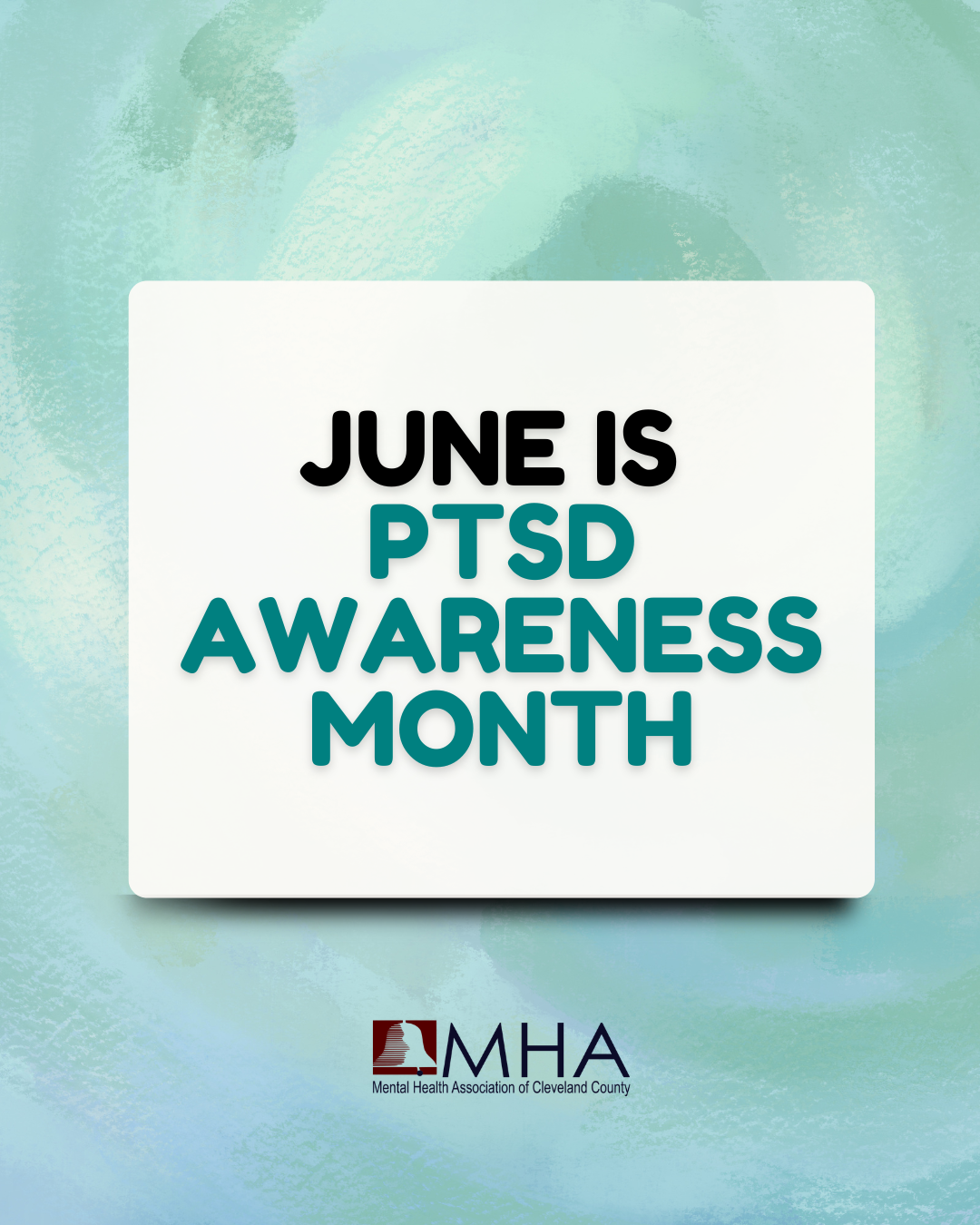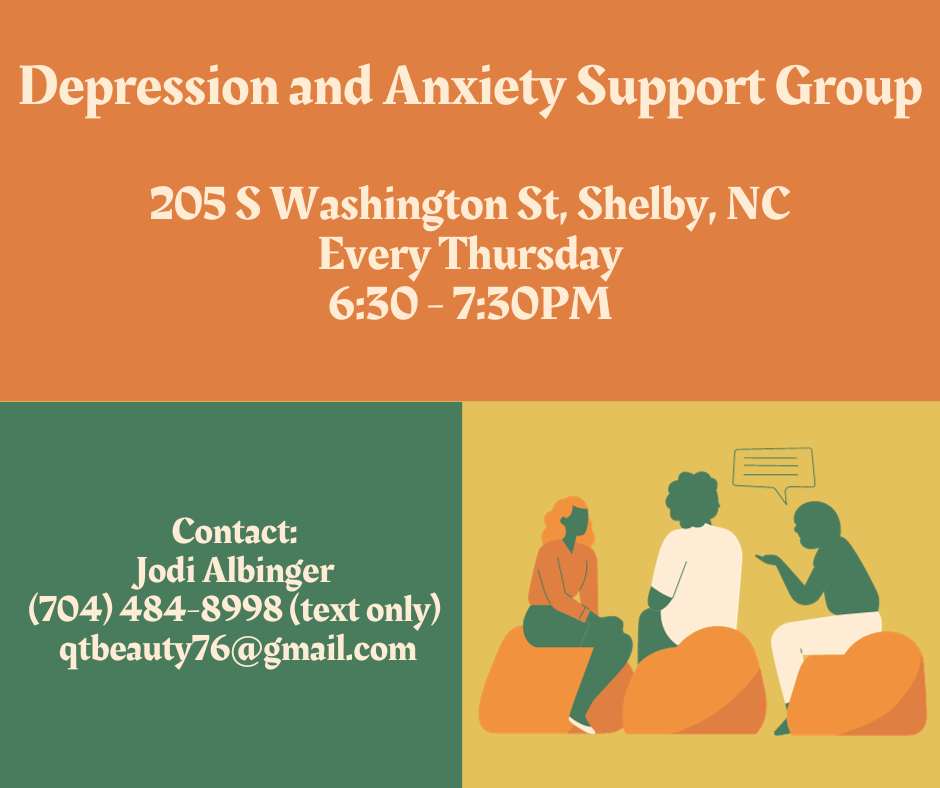May 2025: E-Newsletter
To get this newsletter sent to your email, join our mailing list here.Introduction
As May comes to a close, we want to thank everyone who supported us this month by coming to our events in honor of Mental Health Awareness Month.
Even though May is coming to a close, we must remember to advocate for mental health throughout the year. Everyone has mental health and anyone can be impacted by mental health concerns. 1 in 5 adults experience mental illness each year and 46% of Americans will meet the criteria for a mental health diagnosis at some point in their lives. Even if you do not experience your own mental health concern, there is a good chance you know or will meet someone who does. So, how can you be a mental health advocate?
Take them time to learn about community mental health resources, especially crisis intervention resources in your community. Crisis intervention teams are trained to support individuals who are actively experience a crisis and get them the help they need.
If you live or work in Cleveland, Gaston, and Lincoln County communities, save Phoenix's Mobile Crisis number in your phone: 855-527-4747(available 24/7/365).
Attend educational trainings put on by agencies like Partners and MHA of Cleveland County. At MHA, we will even come to you if you reach out to us to request a training at your workplace (at no cost). Currently, MHA offers
Avoid stigmatizing language to describe others (i.e., "That person is crazy").
Learn about the basics of mental health such as what factors into mental health and the social impacts on those experience mental health concerns.
Understand that advocacy is more than just wearing a "mental health matters ribbon." Advocacy involves taking steps to reduce stigma, increasing access to care (especially for those who face obstacles to care), educating others in your life about mental health, provide support, and advocate for policies and resources that address the the needs of those living with mental health concerns.
Share your own story, which can fight stigma and build connections.
Work with others in your community already doing the work. There's no need to replicate work that's already being done. If you want to help, consider connecting with existing organizations and seeing what they need help with.
This is just a few of the ways to be a mental health advocate. For more educational resources, visit these webpages:
PTSD Awareness Month
June is PTSD Awareness month. PTSD stands for Post Traumatic Stress Disorder, which is a mental health diagnosis that affects about 9 million adults in the United States (source). A person can develop PTSD after experiencing or witnessing a traumatic event or serious injury (source).
If a person has gone through a traumatic experience, they may have feelings such as fear, distress, helplessness, guilt, shame, or anger (source). For many people these feelings may alleviate after a few weeks, but for some people symptoms can last longer. For individuals that last longer than a month, they may be diagnosed with PTSD (source).
We aim to share more information on PTSD this month on our blog. In the meantime, here are some resources and information to start with:
MHA National's PTSD Screening Test - Completely anonymous test that assesses your responses and determine whether you are experiencing symptoms of a mental health condition
Cleveland County Resource Guide - List of mental health agencies and providers who can offer mental health services, including those who accept uninsured, medicare, medicaid, and sliding scale.
Mindfulness Coach App - Phone app that helps teach mindfulness benefits and exercises.
Coping with Traumatic Stress Triggers - A guide provided by the VA that explains how to cope the traumatic stress reactions and other symptoms of PTSD.
Supporting Someone with PTSD or CPTSD - Article detailing how to be supportive of those with PTSD
Trauma Explained Webinar - A Zoom Webinar hosted by PTSD UK; tickets are pay what you can. Please be aware of the time zone when registering.
Upcoming Events Hosted by MHA
This list contains all events that are led by or in collaboration with the Mental Health Association of Cleveland County. You can also find these listed on our calendar.
Happening Locally
Here are some things you can do locally to help get you connected to activities that can support your mental health. All activities are free (F) or low-cost (LC). If you know of any things to do in Cleveland County and think we should include it in our monthly newsletter, send an to egrimsley@clevelandcountymha.org.
Events in Shelby
Broad River Market - Jefferson Park (801 Jefferson St.)
Every Monday, 4:30 pm - until out of food
100% FREE food - fresh produce and groceries
Cleveland County Mutual Aid Pop Ups
Next Pop Ups:
June 1, 1 - 4 PM at 212 W Warren St., Shelby, NC
100% FREE items - toiletries, books, clothes, OTC medications, etc.
Facebook group open to helping people connect with resources and help
Cleveland County Libraries (various locations) (F)
Everything is Upside Down (Eugenia H. young Memorial Library)
Tuesday, June 17, 1:30 - 2:30 pm
Manga Club (Eugenia H. Young Memorial Library)
Tuesday, May 20, 5:30 - 6:30 pm
Colorful Eating (Eugenia H. Young Memorial Library)
Thursday, June 19, 5:30 - 6:30 pm
Mini-Barn Quilt (15+) (Spangler Branch)
Monday, June 23, 10:00 - 11:00 am
Fiddle De Dee Fidget Making Program (Eugenia H. Young Memorial Library)
Tuesday, June 24, 1:30 - 2:30 pm
Bad Art Night (Eugenia H. Young Memorial Library)
Thursday, June 26, 5:30 - 6:30 pm
Yoga (Eugenia H. Young Memorial Library)
Monday, June 2, 5:30 - 6:30 pm
Makers Meetup - Sea Glass Windchimes (Eugenia H. Young Memorial Library)
Thursday, June 5, 5:30 - 6:30 pm
Monday Night Book Club (Eugenia H. Young Memorial Library)
Monday, June 9, 5:30 - 6:00 pm
Tie Dye (Eugenia H. Young)
Tuesday, June 10, 1:00 - 6:00 pm
Hilltop Book Club (Adult) (Spangler Branch)
Tuesday, June 10, 4:00 - 5:00 pm
Learn & Grow Garden Group (Adult)
Saturday, June 14, 11:00 am - 12:00 pm
Line Dancing (Eugenia H. Young Memorial Library)
Monday, June 16, 5:30 - 6:30 pm
Expanding Your Toolkit: Support Groups and Trainings
Trainings by Partners
At the time of writing this newsletter, Partners has not updated their training calendar for April. To check back later, click here.
Support Groups
MHA’s Depression and Anxiety Support Group
Every Thursday, 6:30 - 7:30 PM
205 S Washington St. (Upstairs Conference Room), Shelby, NC - please note: building does not have an elevator.
Gaston, Lincoln, and Cleveland Brain Injury Support Group
Third Tuesday of each month, 6-7 pm
ComServe, 1541 Delta Drive, Gastonia, NC 28052;
Contact: Patricia Haithcox at phaithcox@comserve.org, 704-736-5307 or Shanda Daniels at 704-772-4291
Online: Reoccurring biweekly, 7:00 PM - 8:30 PM.
Access here.
Hickory Brain Injury Support Group
Last Tuesday of the month, 6-7:30 PM
First United Methodist Church, 311 3rd Ave NE, Hickory, NC
Contact: travis@crossroadscounseling.org, 828-781-0778
12-step style program for emotional health struggles
Visit site to find virtual meetings
Know of an existing support group or want assistance starting one? Contact us by emailing egrimsey@clevelandcountymha.org to get added to this list or develop one.




